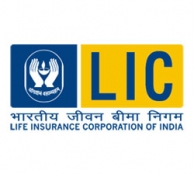The core idea in this Article is to bring in a healthy debate as to whether the Government Policy of levying Service Tax on Life Insurance premiums is a desirable practice to the nation. When Finance Act of 1994 was passed with the new concept of Taxation on services the then Finance Minister himself would not have probably envisaged the monstrous size of the tax which was unleashed and the short gestation period it could take to surpass the Direct tax mop up. The nuances of the income tax law in India was often viewed with astonishment by most of the general public who wondered what else can complicate the system further. This was answered when the complexities of service tax were seen. The layman cannot and is not supposed to feel the heat of indirect taxation which most of the governments across globe push as it is easy to implement and monitor. However it was a time proven fact that the Service Tax collection would over take Direct Tax collection in the very short run provided the machinery is all set into penal roles. To the Government, addition of each services or reduction in the negative list brings cheers where as for common man, it brings tears.
While this is being written, the price of the LPG cylinders for domestic use were increased almost 23% in a single shot which may trigger more public protest than the levy of service tax over life insurance premiums. However the instigation of writing this was that Life Insurance Corporation of India has decided to levy service tax directly from customers rather than paying out of its coffers. As the ultimate customers are concerned, at least for some of them, this should be a zero sum game as the decision of LIC to levy ST on premiums would result in more bonus to the customers. As far as private players are concerned they have already started charging tax component over and above the premium since beginning of 2013. But the core question lies in the fact that, is all and everything liable to be taxed and mandatorily a portion needs to go to Government? That too in the case of life insurance policies where people make their life as insurable interest? Any welfare state for that matter should take one of its main objectives as welfare of its subjects and that the less uncertainty among its subjects, the more would be the symptoms of a welfare state.
One of the tools with which a Government can build a healthy country, is to push Life Insurance Policies to the nook and corner of the nation. The benefit is that in case of risk to life, or earning capacity of the earning member of any family is there, the insurance policy would act as a buffer to the family in times of uncertainty surrounding the family due to the sudden gap of the earning member. This will work out only if the aamaadmi is able to get adequate cover at affordable prices. There is no doubt that Life Insurance Corporation of India has succeeded in doing that job rightly to a great extent.
Take the matter of private insurance players who concentrate on urban areas to cross their target. Even the decision of LIC though may result in higher bonus, would have a negative impact on prospective policy buyers, as they may go for a lesser cover to suit their respective budgets. All of you may well remember the decision of Government for the levy of medical treatment reimbursement in certain cases which drew flak, and was subsequently withdrawn fearing public flak, but similar protests were not seen in the case of Life Insurance premiums which carry an equal and important aspect of social life in the country. Also the effective rate prescribed can always go up with an executive order as the service is already covered under the tax net. The author hopes that the Government would reconsider the position and would give up its revenue from the particular area for the greater public interest than having the narrow vision of revenue mopping up.



